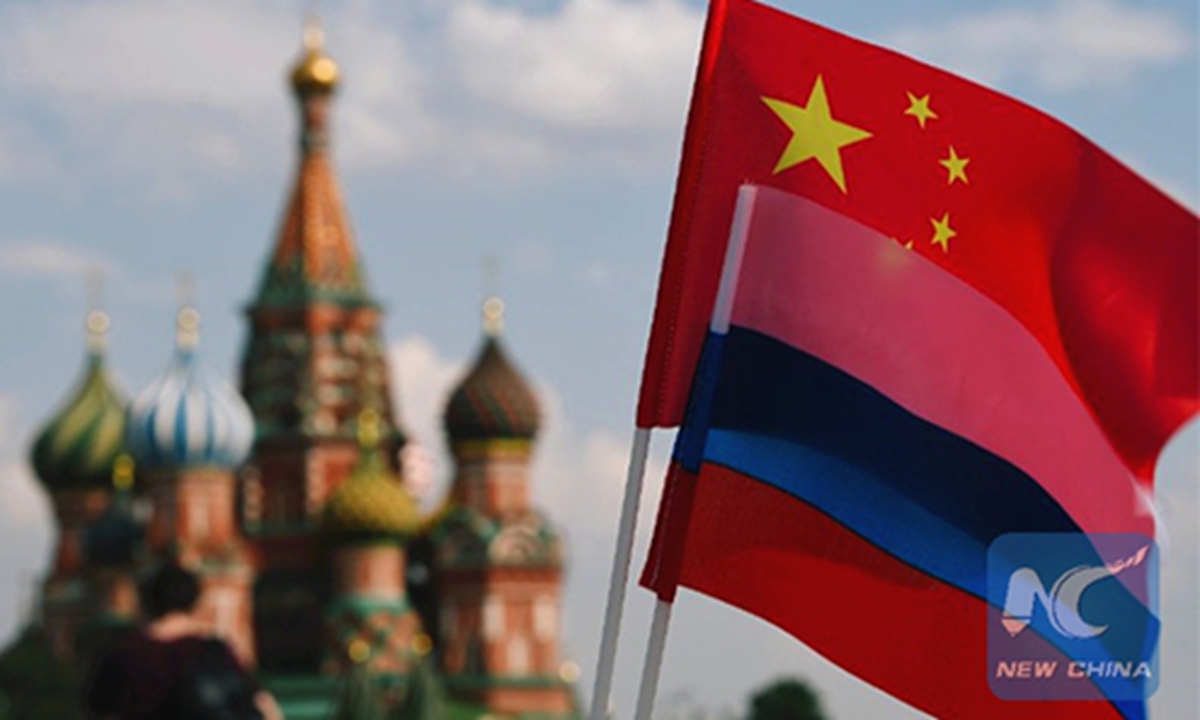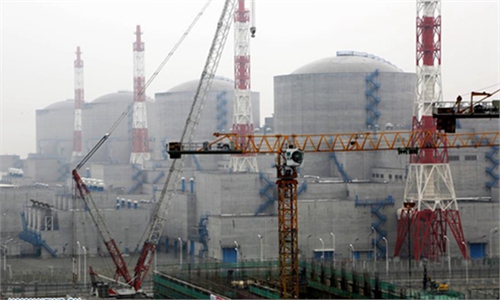
Photo: Xinhua
Editor's Note:
This year marks the 20th anniversary of the signing of the Treaty of Good-Neighborliness and Friendly Cooperation between Russia and China. During the recent visit to China by Russian Foreign Minister Sergey Lavrov, the two sides agreed to extend the treaty and enrich it with the essence of a new era. What is the essence of the new era? What is the trajectory of China-Russia relations in face of US hegemony? Global Times (GT) reporter Wang Wenwen interviewed Ivan Timofeev (Timofeev), Director of Programs at the Russian International Affairs Council, over these issues.
GT: What do you think are entailed in the essence of the new era in terms of China-Russia relations?
Timofeev: The treaty was a significant landmark in Russia-China relations. To understand its importance one just needs to compare Russia-West and Russia-China relations. The Russia-West border is getting more and more militarized while the Russia-China border is getting less and less militarized. We have no territorial disputes and our trade and political relations are moving forward. We may need to rethink the treaty in the future due to the fact that Sino-Russian relations are getting closer to alliance relations. This alliance may be flexible; however, the quality of relations now is different than we had even 10 years ago. And this new quality needs a reflection in the legal framework of our relations.
GT: Before US President Joe Biden took office, he labeled Russia as the biggest threat to US security and an opponent, while China is a "serious competitor." In Biden's tenure, what will be the trajectory of Russia-US relations and China-US relations? What will be the biggest factor of uncertainty for Russia-US relations?
Timofeev: Russia-US relations are trapped by contradictions on fundamental issues and are not likely to improve in the near future. The key uncertainty is about new political incidents, which may make relations even harder. The US approach to China will be more hostile. This is a long term strategy to contain China. And the change of administration will hardly affect this strategic priority for the US.
GT: Chinese Foreign Minister Wang Yi said China and Russia should work together to fight color revolution and disinformation. Both are victims of the Western color revolution and propaganda offensives. In what areas can the two sides cooperate?
Timofeev: Both China and Russia regard color revolutions as an interference into domestic affairs. Moscow and Beijing may cooperate closer on exposing the fake news about the two countries. Both countries need to increase youth exchanges and raise awareness about the culture, history and society of each other.
GT: Europe and the US have ratcheted up sanctions on Russia and China over human rights, but avoided economic sanctions comparatively. Are these sanctions a show of their hegemony? Some Russian scholars believe the sanctions will be a new normal in Russia and China's relations with the West. What do you think?
Timofeev: Human rights sanctions are rather of a signaling nature. They do not affect the economy much. However, there is a potential for targeted sanctions, which may be more painful for both countries. We will see more sanctions against China and Russia in the future. Yes, this is a new normal.
GT: A joint statement by Chinese Foreign Minister Wang Yi and Russian Foreign Minister Sergey Lavrov opposed politicization and double standards on human rights issues. How can China and Russia join hands to counter the West, e.g. via the UN Human Rights Council?
Timofeev: Russia and China have a good and solid experience of cooperation at the UN Security Council. However, more domains should be explored and UNHRC is one of them. Human rights is an important global issue and both countries should address it via the UN. What Russia and China could do is to promote the resolution of global problems, such as poverty. Real achievements on improvement of human lives give much more than just words about human rights. Other UN institutions like UNDP may be a field of more active efforts.
GT: Russian Foreign Minister Sergey Lavrov said during his trip to Chinese city of Guilin that China and Russia should work together to move away from dollar payments. This triggered attention from the Western media. You also suggested in your article the issue of a single payment system in the EAEU and the SCO formats. Can you explain the roadmap for such measures?
Timofeev: The US dollar is a comfortable instrument for international business. However, the US may use it to achieve political goals, so China, Russia and even the EU have to think about alternatives. This change should not be done overnight, not to harm business. But gradual change is needed.
GT: Both China and Russia stress partnership rather than an alliance, but both do face real security threats from the US-led West. How can China and Russia cooperate in providing mutual security support?
Timofeev: Sino-Russian relations are still not an alliance, but they are more than partnership. Both sides should carefully work on the parameters of new relations to address common security challenges. I would not exclude the alliance in the future, especially if the pressure from the West is growing up.
GT: To what extent does the world come to a balance of power with one side being China and Russia and the other side led by the US and the West?
Timofeev: I would not say that we already have such a balance. But this is one of the possible alternatives for the world in the future. Russia and China are feeling good in a multipolar world. However, they may be forced to compose a closer security alliance and promote their interests in an increasingly bipolar world. This would be an alternative to the US hegemony.

